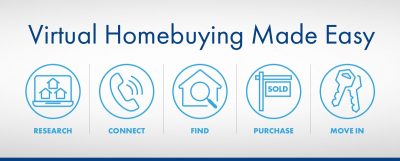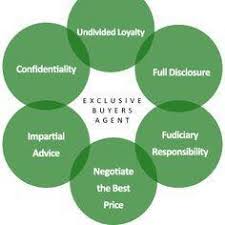Guidance for Moving During COVID-19

The novel coronavirus (COVID-19) has put a stop to the normal routines of everyday life both in the U.S. and abroad. And while social distancing is the course of action to take until told otherwise, moves aren’t always something that can wait. Real estate is considered an essential service in all states and there are many services providers to assist you in facilitating a move to a new home.
By taking extra safety precautions and minimizing social contact, you can still move safely. If you are about to move, you can still pull it off with a little extra planning and a few precautionary steps.
Here are some tips for making your move as safe, seamless and stress-free as possible.
Moving Companies:
There have not been any notable shutdowns of service among major moving companies. That being said, decisions about closures may be left to individual franchise owners. If you have already scheduled your move and haven’t heard anything, assume that your moving company is still providing services unless told otherwise, but still call just to confirm.
If you’re worried about moving during a pandemic for a move that is still upcoming and for which you haven’t scheduled movers, it’s hard to say what will and will not be available in the months to come. For now, continue to do research on companies and ask directly what steps are being taken when you reach out. What has changed at this point is largely going to be related to the customer experience itself, including frequent hand washing among movers and no physical contact between movers and clients.
If you need to select a moving company, ask for a virtual quote and see if the company offers fully contactless service. Forgo handshakes, for obvious reasons. A smile and a generous tip (sent through Venmo, PayPal or another contactless digital platform) are a welcome substitute. These companies have virtual estimate procedures available for competitive quotes
- United Van Lines
- Allied Van Lines
- International Van Lines
- Wheaton World Wide Moving
- North American Van Lines
Moving companies are taking the coronavirus pandemic very seriously. To that end, companies across the country have put into place protocols designed to protect their employees and their customers. These include:
- Following federal and local guidelines around social distancing and sanitization
- Conducting virtual surveys instead of in-home surveys to provide estimates
- Frequently sanitizing trucks and equipment
- Practicing social distancing with customers and, as much as possible, among moving teams
- Wearing masks and gloves
- Keeping trucks stocked with hand sanitizer
All of these practices help ensure that moving services can remain available in a safe way.
Car shipping companies open during COVID-19 outbreak
| Company | Status | Additional info |
| AmeriFreight | Open | Learn more |
| Montway Auto Transport | Open | Learn more |
| Sherpa Auto Transport | Open | Learn more |
| Ship a Car Direct | Open | Learn more |
| uShip | Open | Learn more |
Interstate moving companies open during COVID-19 outbreak
| Company | Status | Additional info |
| Allied Van Lines | Open | Learn more |
| American Van Lines | Open | Learn more |
| Expedia Van Lines | Open | Learn more |
| First National Van Lines | Open | Learn more |
| International Van Lines | Open | Learn more |
| Interstate Moving & Relocation Group | Open | Learn more |
| North American Van Lines | Open | Learn more |
| PODS | Open | Learn more |
| Silver Star Moving Group | Open | Learn more |
| United Van Lines | Open | Learn more |
Storage Services
Same as moving companies, major storage companies continue to run operations. What you might be able to expect however is limited hours of accessibility and/or a reduction in the number of customers who are able to access their units at any one time. Storage companies should also be following proper hygiene practices, including sanitization of access pads and the requisite six feet or more of space between customer and customer and customer and employee.
Storage companies open during COVID-19 outbreak
| Company | Status | Additional info |
| CubeSmart | Open | Learn more |
| Extra Space Storage | Open | Learn more |
| Public Storage | Open | Learn more |
What If I’m Moving By Myself?
The process of a DIY move looks pretty much the same now as it did before COVID-19, minus the ability to have a couple friends come over and lend a hand in exchange for pizza. Some additional things that you will want to do however include keeping hand sanitizer, soap, and paper towels accessible at all times, we well as making a detailed plan for both your departure and arrival.
Major rental truck companies continue to be in service, as they are considered essential for transportation and personal mobility needs. Again, what may be different is the experience, since companies like Enterprise and U-Haul have put into place their own protocols for physical distancing. This means that your pick-up and drop-off location may not be at the branch office, and that you’ll have to make your reservation online or over the phone instead of in person.
If you rent, talk to your current landlord about how you can safely drop off keys and collect your security deposit, and talk to your new landlord about the process for a safe move in. Putting in a blueprint of steps ahead of time will help you maintain social distancing during your DIY move and answer any questions you might have about the process.
Truck rental companies open during COVID-19 outbreak
| Company | Status | Additional info |
| Budget | Open | Learn more |
| Enterprise | Open | Learn more |
| Penske | Open | Learn more |
| The Home Depot | Open | Learn more |
| U-Haul | Open | Learn more |
How to Prepare For Your Move
One silver lining is that social distancing means that you might have more time to devote to organizing your home prior to your move and getting rid of the things you no longer want or need. If you plan on donating items like clothing, linens, furniture, shelf stable non-perishables, etc., call the place that you would like to donate to ahead of time and see what their policies are. While many people are in need during this time, it’s likely not going be quite as easy as just driving to your nearest donation center and dropping stuff of (but that doesn’t mean you shouldn’t do it).
Junk removal companies open during COVID-19 outbreak
| Company | Status | Additional info |
| 1-800-GOT-JUNK | Open | Learn more |
| College Hunks Hauling Junk | Open | Learn more |
| LoadUp | Open | Learn more |
| Waste Management Dumpster Rentals | Open | Learn more |
To prepare for a move amidst COVID-19, be sure to keep the following steps in mind:
Contact your movers
This is important to confirm your reservation and discuss best practices for moving day. Moving companies are putting in lots of safeguards to help protect their clients, and it helps to be on the same page as them in terms of what is expected.
Buy all of your supplies at once
You are going to want to get it right with just one trip to the store, so make sure you know exactly what you’re going to need for your move. Don’t use free or recycled moving boxes. The coronavirus can live on cardboard for as long as 24 hours, so now is not the time to be picking up free moving supplies from places that are recycling them. Boxes that you already have in your home are fine, but if you need any extras then you’ll need to go to the store and buy them new (even better if you can then purchase them through self-checkout). Better yet, order all your moving supplies online and have them shipped to your residence. Clean as you pack. Use this opportunity to sanitize your belongings, wiping items down with disinfectant. If you don’t have any, you can make one with a solution of one tablespoon bleach to one gallon of water.
Finish packing at least 24 hours before the movers arrive
Coronavirus can last a long time on surfaces, including up to 24 hours on cardboard boxes. Your movers will be wearing gloves, but for everyone’s safety you should still have your boxes packed and sitting untouched at least a day before your movers arrive.
Provide hygiene products for your movers.
To aid your movers in following necessary hygiene practices, be sure to leave out products that they can use while they transport your items to and from the moving truck. That includes soap and paper towels by the sink, and hand sanitizer by the door that they’ll be entering and exiting through. If you’re concerned about having enough supplies, let your moving company know so they can be sure to bring them along for use during the move.
Be transparent and flexible
In advance of your move, reach out to your neighbors — especially if you live in an apartment building — and share the date and time you plan to move. This gives everyone in your direct vicinity an opportunity to avoid unnecessary contact and let you know if your timing is a problem.
When you move into a new home, deep clean it
Be sure to deep clean and sanitize your new home before you move into it. Here are a few resources and tips to help:
CDC’s recommendations on how to clean and sanitize your home
- Use disinfectant wipes for quick cleanings over the most high-touch areas – doorknobs, sinks, cabinet pulls, refrigerators, etc.
- Use disinfectant sprays for areas that can’t be wiped clean. You can use Lysol, for example, on your couches and mattresses which will touch many surfaces during a move (the ground, the inside of a truck, etc.).
- Use this CDC bleach mixture recommendation on your new tile floors. Use a disinfecting wet mop cloth on your hardwood floors As you unpack, be sure to also disinfect your computer and accessories (keyboards can get pretty gross – here’s how to clean them), your television remote controls, credit cards, wallet, and more.
If you have an extra minute, here are some additional things to consider
- Prioritize your internet setup. Scheduling an internet installation date at your new home is critical for staying connected to friends and family. There are 1-2 hour call wait times at cable and internet providers right now, as more and more people call to increase speeds and bandwidth. You can’t bank on getting an appointment as easily as you have in the past. Additionally, consider a high bandwidth plan to account for changes in working from home, video calls, multi-device streaming, etc.
- Stocking your kitchen full of groceries will feel a bit different this time around. Try Shipt or Instacart, or delivery options from your local grocery store.
Additional resources:
- While planning your move, continue to monitor the health and safety guidelines set out by the World Health Organization (WHO)and the Centers for Disease Control and Prevention (CDC).
- For tips on infection prevention, visit gov.
Moving is stressful under the best of circumstances; this is a scary time and certainly takes moving stress to the next level. With some planning and organization, you can relocate and stay safe even in an environment with a pandemic.



















 Kim N. Bregman
Kim N. Bregman